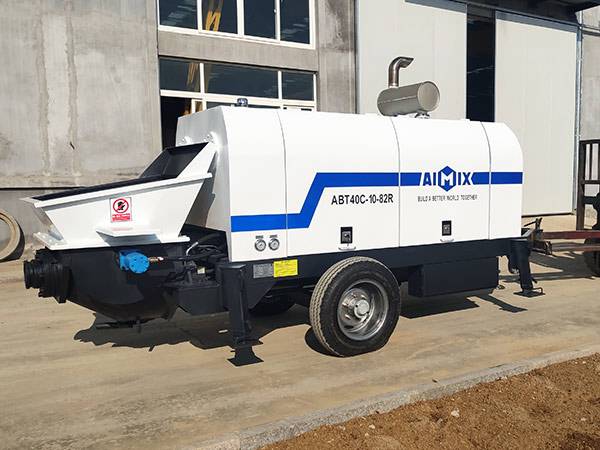


Learn effective strategies to prevent concrete pump clogs, ensuring smooth operations and minimizing costly downtime.
Concrete pumps are essential for streamlining construction projects, but one of the most common and frustrating issues they face is clogs. These blockages can bring work to a halt, waste valuable time, and result in costly repairs. Preventing concrete pump clogs is manageable with the right strategies in place. Understanding how to minimize blockages will keep your equipment running smoothly and your project on schedule. Let’s explore the prevention tactics for a clog-free jobsite.
Concrete pump clogs typically arise from a few key factors. The first major cause is poor-quality concrete, which can contain debris, oversized aggregate, or excessive moisture. These materials can easily cause blockages as they travel through the small concrete pumps. Another cause is inadequate cleaning. Leftover concrete residue can harden inside the pump, leading to stubborn clogs. Lastly, incorrect hose sizes or poor-quality hoses can restrict the flow, contributing to pressure buildup and clogs. Understanding these causes is the first step in preventing issues.
To avoid clogs, it’s crucial to use the right materials. Investing in high-quality concrete with properly sized aggregates reduces the likelihood of blockages. Concrete with large chunks of aggregate is particularly troublesome. The condition of your pump’s hoses and pipes also plays a significant role. Using premium hoses that are the correct size ensures smooth concrete flow, preventing obstructions. Don’t skimp on materials—the small cost upfront can save you significant money and time by avoiding future blockages.
Cleaning and maintenance are some of the most effective ways to prevent clogs. After each use, flush the pump thoroughly to remove any remaining concrete slurry. Concrete residue left inside will harden and cause clogs. Regular maintenance, such as inspecting hoses for cracks and checking the pump’s pressure system, can also help catch potential issues early. By sticking to a cleaning schedule and keeping the pump in good shape, you’ll avoid the frustration of unexpected blockages.
Operational practices can significantly impact the likelihood of concrete pump clogs. Ensuring the proper mix consistency before pumping is crucial. If the mix is too thick, it won’t flow properly through the pump, increasing the risk of clogs. Also, avoid running the pump at excessive pressure, as this can strain the system and cause blockages. Keeping the pressure steady and ensuring the concrete is the right consistency helps maintain smooth operations.
Even with the best equipment and maintenance, human error can contribute to clogs. Training operators to recognize potential issues and operate the portable pumpcrete correctly is essential. They should be familiar with the ideal concrete mix, pressure settings, and how to troubleshoot problems. A monitoring system can also help track pump performance and alert operators to any deviations. Proper training and monitoring ensure that clogs are avoided or addressed quickly, saving time and money.
Concrete pump clogs may seem inevitable, but with the right strategies, they can be avoided. By using quality materials, maintaining the pump, and following best practices for operation, you can keep your pump in top condition. Regular cleaning, the right mix, and well-trained operators are key to a smooth operation. Prevention is always better than repair, and taking these simple steps will keep your concrete pump running efficiently for years to come.
